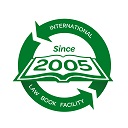In this article, we catch up with the winner of our law undergraduate essay competition 2022-2023, Clarissa Wern Ting Wong, to discuss her experience and her thoughts on our topic: ‘What difference can lawyers make in tackling the climate emergency?’
Can you tell us a bit about yourself and the roots of your interest in the law?
I am currently a second-year law student at the London School of Economics and Political Science. I became interested in law because it is a tool for decisions which can change lives and society; it is a way to make a difference. I wanted to learn how exactly the law could be used to seek justice, resolve conflict and allow people foresight. These are causes that resonate with me.
How did you learn about the ILBF essay writing competition and what made you decide to enter?
I was researching online about climate change when I chanced upon a link to the ILBF competition page. The competition presented a good opportunity for me to better understand the legal community’s unique role in tackling global problems like climate change. It also raised the question of whether the law in its current state can sufficiently facilitate climate action. I felt these questions were important to consider as an aspiring legal professional.
Can you tell us a little about your essay, how you approached the subject and why you feel it is important?
My essay outlines how various legal professionals can act as agents of the rule of law to entrench climate conscious decision-making and climate accountability frameworks. Whether it is by advising firms, serving as in-house counsel, litigating in court or drafting transboundary environmental standards, lawyers can ensure that potential environmental risks are scrutinised. Only with coordinated initiative across the legal profession can climate action proceed in as swift and systemic way.
Tell us about the internships you did as part of your competition prize. How did you find the experience and what did you learn?
My internships were very eye-opening. They helped me appreciate that legal solution-finding is really a holistic and collaborative exercise. At Latham & Watkins, I learnt how lawyers of different specialties cultivate their technical know-how, so as to contribute various angles of insight to advise a client’s plan– whether it is from the angle of environment law, competition law or corporate law. At LexisNexis, I learnt how the professional support lawyers and paralegals curate a wealth of essential practical knowledge to support other lawyers. This experience taught me that effective lawyering requires flexible thinking, meticulous knowledge management and synergy with other nodes of the legal ecosystem.
What is next for you? What are your goals during and beyond your legal studies?
I will be starting my second year of law school soon. I am especially excited to continue learning about how the foundational fields of law interact in emerging practice areas, such as climate change law. I hope to one day make a difference in my legal career.
To help keep the climate emergency at the forefront of legal debate, if you could highlight one key take away from your essay, what would it be?
Legal professionals have the responsibility and privilege to keep the law relevant as a driver of positive change. Their creativity in using their legal toolkits will go a long way in adapting a system which has run on precedent to the unprecedented challenges posed by climate change.
Congratulations again to Clarissa for her success. We wish Clarissa the best of luck in her ongoing studies. Our thanks to Latham & Watkins and LexisNexis for supporting the ILBF essay competition and hosting Clarissa’s internship.
Let’s keep the climate emergency at the forefront of legal debate, news and practice. We will soon be publishing a grand summary of the submissions for this year’s competition. In the meantime, Clarissa’s essay is available to read here.


